How to Feed Vegetarian Fish
Updated on 05/26/24
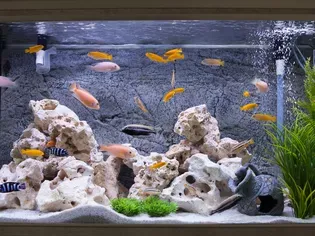
Unveiling the Secrets of Feeding Vegetarian Fish: A Comprehensive Guide
In the vibrant tapestry of aquatic ecosystems, vegetarian fish occupy a unique niche and offer a fascinating alternative to carnivorous counterparts. Catering to their specialized dietary needs requires a nuanced understanding of their physiology and nutritional requirements. This comprehensive guide will delve into the intricacies of feeding vegetarian fish, empowering you with the knowledge to nurture their well-being and optimize their health.
Understanding Vegetarian Fish Physiology
Vegetarian fish have evolved distinct anatomical and physiological adaptations that enable them to thrive on a plant-based diet. Their digestive tracts are longer and more complex than carnivorous fish, allowing for efficient extraction of nutrients from plant matter. Additionally, they possess specialized enzymes that break down complex plant carbohydrates, a trait not found in carnivorous species.
Essential Macronutrients for Vegetarian Fish
Like all living organisms, vegetarian fish require a balanced diet that provides essential macronutrients:
* Protein: Essential amino acids are vital for growth, tissue repair, and enzyme production. Plant-based protein sources include soybeans, lentils, algae, and spirulina.
* Carbohydrates: Provide energy and serve as a storage form of glucose. Suitable sources for vegetarian fish include peas, corn, wheat germ, and brown rice.
* Lipids: Essential fatty acids (EFAs) are crucial for cell structure, hormone synthesis, and immune function. Algae, flaxseed oil, and canola oil are rich sources of EFAs for vegetarian fish.
Micronutrients and Additives
In addition to macronutrients, vegetarian fish require a range of micronutrients, including vitamins, minerals, and trace elements:
* Vitamins: Play vital roles in metabolism, immune function, and growth. Include vitamin C (ascorbic acid), vitamin E (tocopherol), and vitamin K in their diet.
* Minerals: Calcium, phosphorus, and magnesium are essential for bone and muscle health. Spirulina, seaweed, and crushed oyster shells can provide these minerals.
* Trace Elements: Iron, iodine, and zinc are required in small amounts but play important roles in physiological processes. Include these trace elements in their diet through algae, fortified foods, or supplements.
Sample Vegetarian Diets for Fish
The specific dietary needs of vegetarian fish vary depending on their species, life stage, and environmental factors. Here are some sample diets tailored to different types of vegetarian fish:
1. Cichlids:
* Plant-based flakes or pellets specifically formulated for herbivorous cichlids
* Fresh vegetables: cucumber, zucchini, squash
* Blanched greens: spinach, kale, collard greens
2. Plecos:
* Algae wafers or flakes
* Sinking pellets with high vegetable content
* Driftwood or other sources of cellulose
3. Goldfish:
* Vegetable flakes or pellets
* Live plants: Elodea, Anacharis, Water Sprite
* Blanched vegetables: peas, carrots, sweet potato
Feeding Frequency and Portion Size
Feed vegetarian fish small amounts several times throughout the day rather than a single large meal. This mimics their natural foraging behavior and helps prevent overfeeding. The portion size should be adjusted based on the fish's size, activity level, and water temperature.
Supplements and Fortified Foods
In cases where the regular diet does not provide sufficient nutrients, supplements or fortified foods can be used to ensure balanced nutrition. Spirulina, algae-based supplements, and vitamin-fortified flakes can effectively supplement the diet of vegetarian fish.
Monitoring and Adjustments
Regularly monitor your vegetarian fish's health and adjust their diet accordingly. Observe their appearance, activity level, and growth rate. If any signs of nutrient deficiency arise, such as lethargy, dull coloration, or slow growth, consult with a veterinarian or research additional nutritional sources.
Conclusion
Feeding vegetarian fish requires specialized knowledge and attention to detail. By understanding their unique physiology, providing them with a balanced diet rich in essential nutrients, and monitoring their health, you can ensure the well-being and longevity of these captivating aquatic creatures. Embrace the joy of vegetarian fish keeping and witness the thriving beauty of a plant-based aquatic ecosystem in your own home.
Explore More Pets
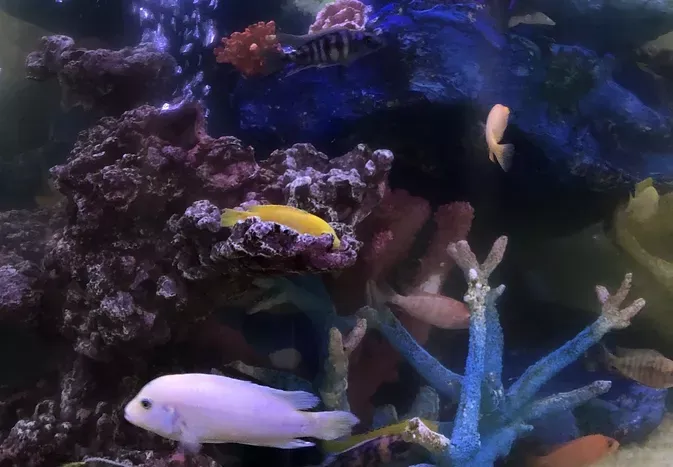
Freshwater Aquarium Filters
How to Deal With Cloudy Aquarium Water
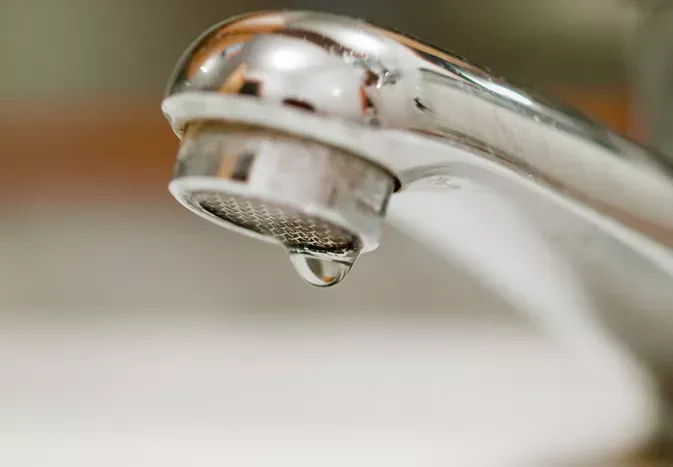
Saltwater Aquarium Filters
How Do You Remove Chloramines From Tap Water?
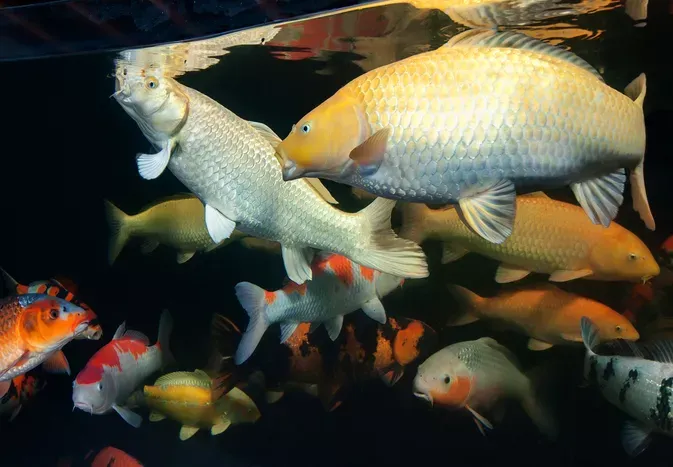
Freshwater Aquariums & Habitat
Can I Keep My Koi Fish Inside?
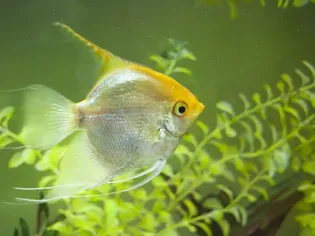
Saltwater Aquariums & Habitat
14 Best Floating Plants for Your Aquarium
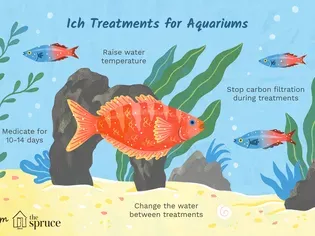
Freshwater Fish Health
How to Treat Ich on Freshwater Fish
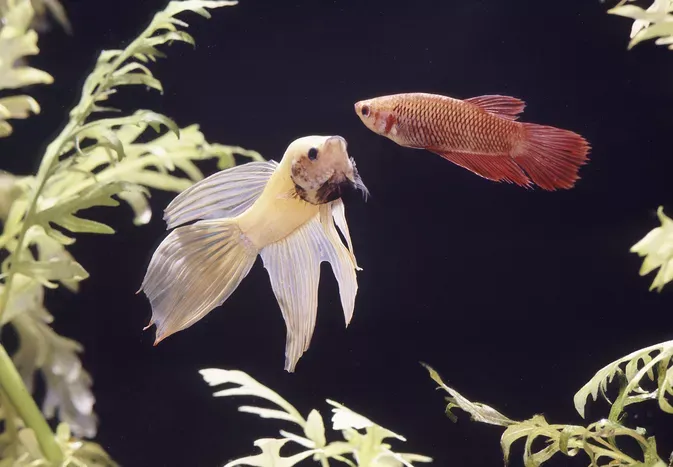
Saltwater Fish Health
Fin Rot in Aquarium Fish
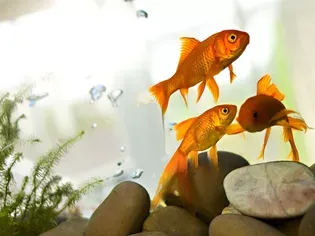
Freshwater Aquarium Filters
How to Do Aquarium Water Changes
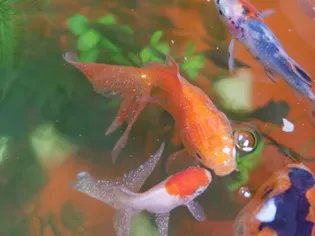
Saltwater Fish Health
How Do Fish Get Parasites?
